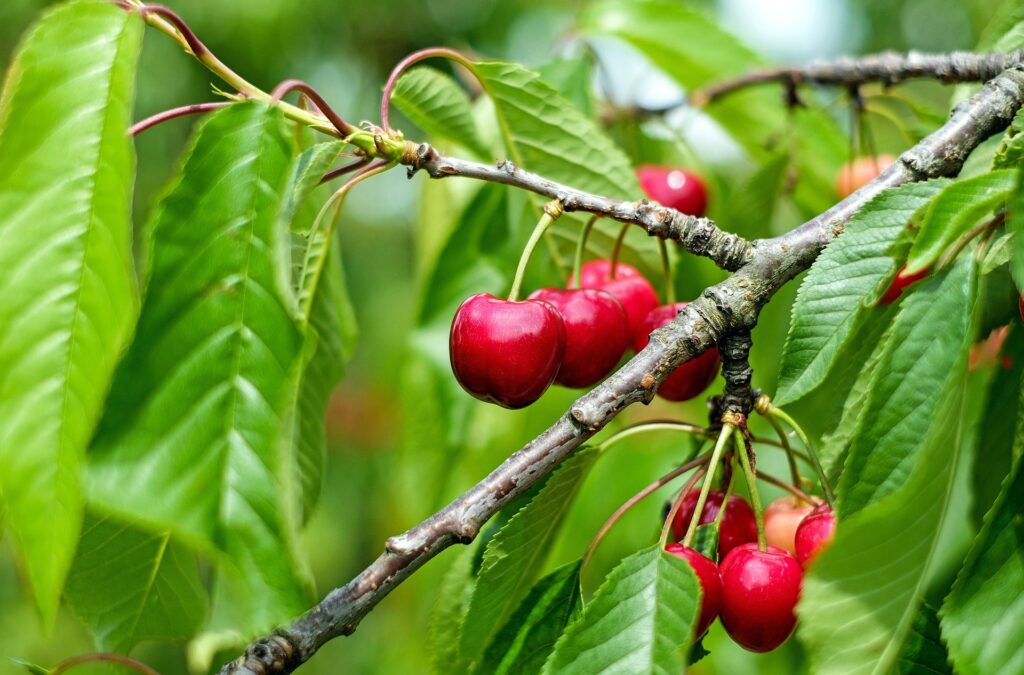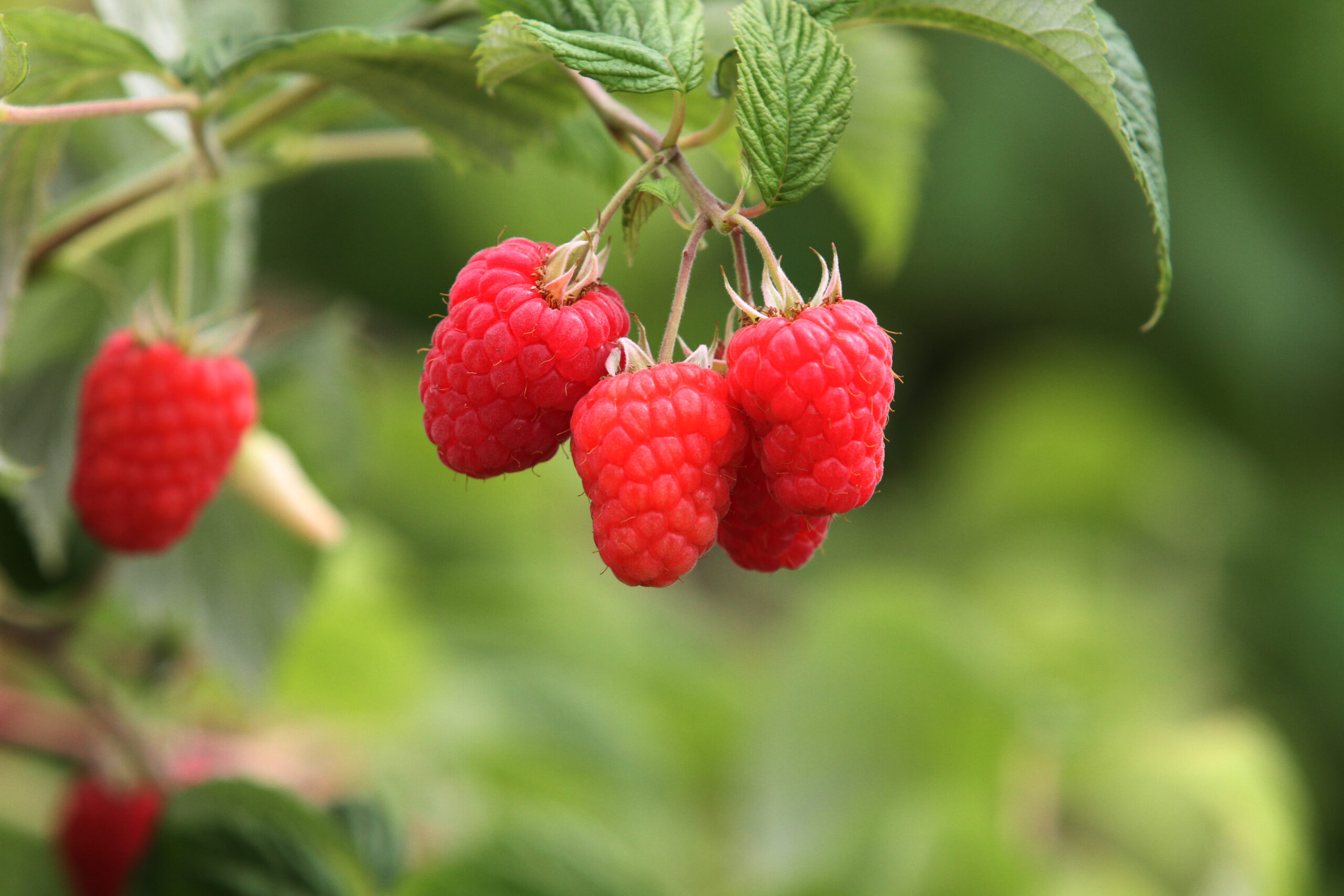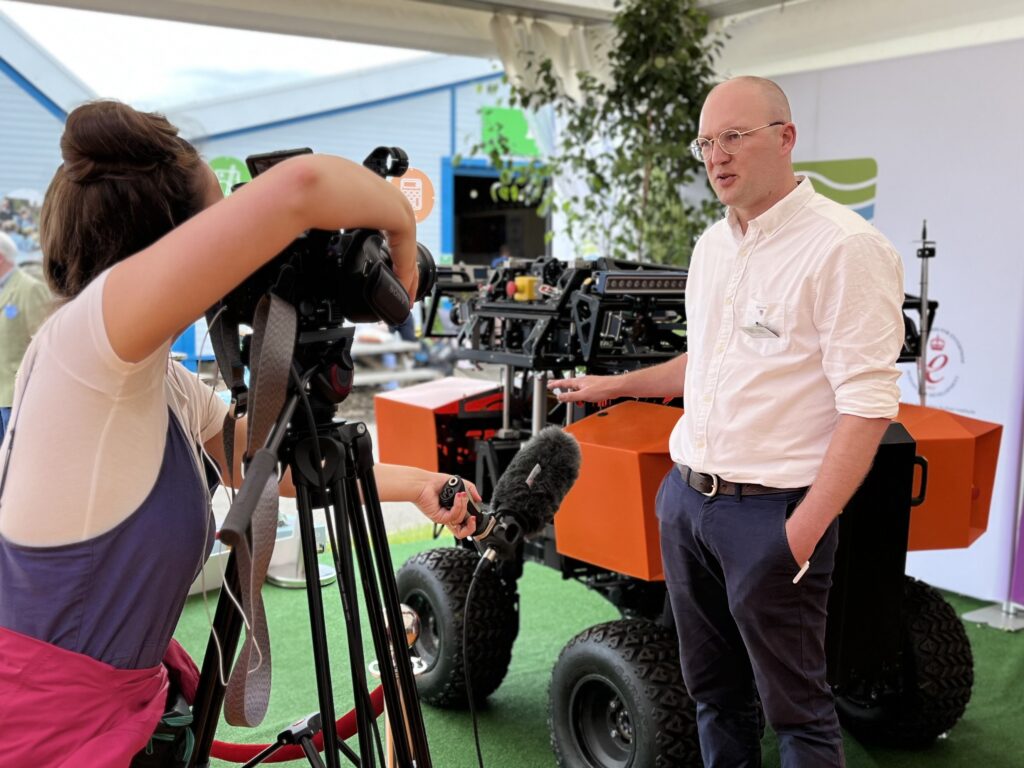Past projects managed by James Hutton Institute Scientific Services
James Hutton Institute Scientific Services manage a range of spin-in and spin-out companies.
Past projects – case studies

CherryBerry – Plant Sensing to Determine Environmental Impacts on Developmental Processes Leading to Crop Yield
Funder – Innovate UK
The Cherry Berry project used a field-based plant and environmental monitoring approach to develop environmental models of blueberry bud initiation and cherry June Drop, attempting to identify signals that arise from the plants short-term responses to environmental conditions (‘sensing’), to identify the point(s) at which the plant’s development leads to the unwanted phenotype (excessive June Drop or excessive vegetative bud development).
The project outputs had the potential to aid the development of bespoke crop management systems in the UK, helping to mitigate the effects of environmental factors to maximise and stabilise yield for cherry growers. This could in turn encourage new plantations of cherry, reduce the reliance on imports and have implications for other crop and crop breeding practices.

RASP – Raspberry Auxin Soil/Substrate Protectant
Funder – Innovate UK
The UK fruit industry and raspberry particularly has been decimated by Phytophthora root rot (PRR) with an 80% reduction in field production leading to a smaller pot based short term industry supported by extensive fruit imports.
Manipulating the physical, chemical and biological properties of the growth medium has the potential to play a key role in inhibiting PRR. Commercial plant growth substrates can be designed specifically to meet a crops individual needs with regards to nutrient requirement, water management and grower preferences.
This project identified multiple responses triggered in a PRR resistant raspberry plant upon challenge with P. rubi, including a mechanism, which has the potential to improve a plants resistance to PRR. The growth medium can be improved by the manipulation of these plant-derived chemical signals that are normally induced upon pathogen challenge in resistant cultivars, to boost the immune capabilities of susceptible cultivars.

5G Future Farming
Funder – Tay5G Challenge Fund – Dundee City Council
Leveraging 5G technology, this project aimed to enhance precision in farming practices, increase crop yield and quality, and support sustainable agriculture.
Demonstrate 5G enabled irrigation systems which react to plant rhizosphere conditions in real time to trigger irrigation events in soft fruit and potato production systems.
- Show benefits of 5G optimised automated irrigation vs manually operated systems.
- Prove that older equipment can be re-invigorated with 5G precision farming technologies using open source, open access autosteer solutions enabled by 5G network data connection.
- Demonstrate efficiencies offered by tractor data visualisation using 5G connected data loggers.
- Dissemination activities to communicate the benefits of 5G in agriculture and challenges encountered.

Nanocell PPE – Novel nanocellulosic composites as antivirals and antimicrobials for new PPE materials
Funder – Innovate UK
The Nanocell PPE project supported the development of completely new PPE materials to offer improved safety and comfort by being highly absorbent, breathable and able to actively kill viruses and bacteria. The potential new materials will also be multiuse, washable and environmentally friendly.
Most PPE is single use, contains plastics, is not easily recyclable and generally is disposed of via landfill or discarded into the environment. It is estimated that if each person in the UK uses a single disposable mask each day for a year this would result in 66,000 tonnes of contaminated plastic waste (which would be a reservoir of infection) and have ten-fold more of a climate change impact than reusable masks.
The project demonstrated the feasibility of producing materials derived from agricultural materials and integrating these into fabric that would enable masks and other types of PPE to be manufactured. These materials were shown to be highly effective against viruses and bacteria with the next stage to overcome barriers to entry into target markets.

MACHINE-CAST – A scalable machine learning framework for forecasting risk of crop pests and pathogens
Funder – Innovate UK
This project created the world’s first pest forecast model which can be applied to multiple crop-pest-geography combinations. This innovative approach provided dramatically improved predictions with a breakthrough level of hyper-localisation and a reduction in the total number of alerts (4x less than current levels).
This broad-spectrum approach to forecasting is highly innovative and has the potential to drive synergistic improvements in the usage of inputs across all of the UKs most important crops; reductions in agro-chem usage, increase in crop yields and reduction of the carbon footprint of UK agriculture.
Join us in shaping the future by partnering with innovators at the forefront of scientific advancement!
Andrew Bowen, Innovation Manager
Contact for more information
Dr Jonathan Snape
Head of James Hutton Limited
Based in Dundee
Dr Jonathan Snape is the Head of James Hutton Limited, with a background in Biochemical Engineering. He is a seasoned Commercial Director driving the commercial translation of research into real-world impact. With expertise and international experience in AgriTech, innovation, and business development, he builds world-class teams to tackle global sustainability challenges. Under his leadership, James Hutton Limited fosters industry and research collaborations, turning cutting-edge science into market-ready solutions. An expert in IP management and technology transfer, he has a proven track record of creating successful spinouts.
